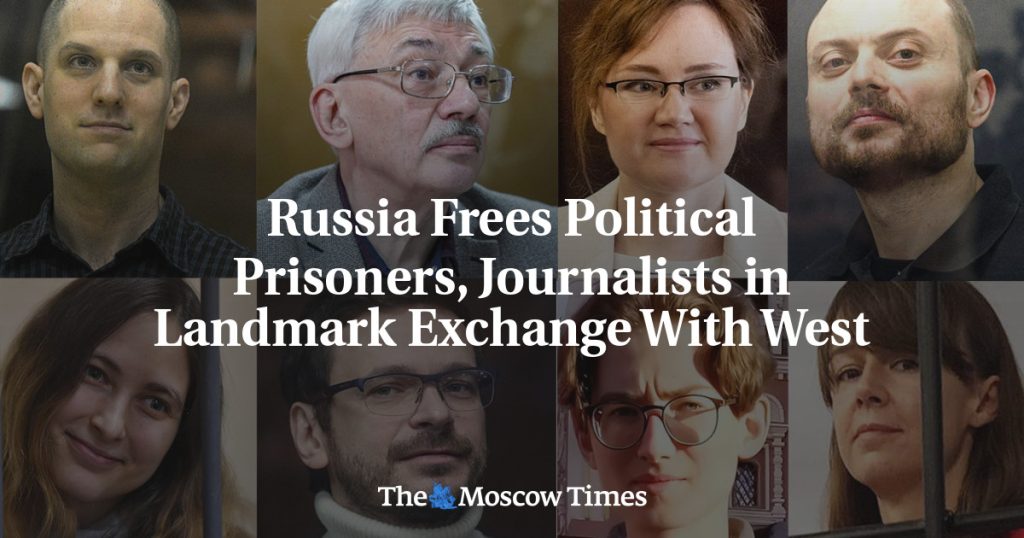After a prisoner exchange involving over a dozen journalists, dissidents, and political prisoners in Russia, U.S. journalist Evan Gershkovich, ex-U.S. Marine Paul Whelan, Russian-British opposition activist Vladimir Kara-Murza, and U.S.-Russian journalist Alsu Kurmasheva have been freed. This exchange is considered the largest and most complex between Russia and the West since the end of the Cold War. A total of 24 prisoners were exchanged at an airport in Ankara, Turkey, with individuals from the U.S., Germany, Poland, Slovenia, Norway, Russia, and Belarus being involved.
Evan Gershkovich, a Wall Street Journal correspondent, was sentenced to 16 years in prison for espionage charges that were strongly denied by him, his employer, and the U.S. government. The charges were based on accusations of collecting secret information on a tank factory in Russia. Paul Whelan, a former U.S. Marine, was serving a 16-year sentence on espionage charges as well, despite claims from the U.S. government that the charges were without merit. The U.S. government deemed both Gershkovich and Whelan to be “wrongfully detained” and considered them to be political hostages.
Vladimir Kara-Murza, an opposition politician and journalist, was serving a 25-year prison sentence for treason and other charges related to his criticism of Russia’s invasion of Ukraine. Kara-Murza’s health had deteriorated in prison due to a nerve condition from surviving poisoning attempts in the 2010s. St. Petersburg artist Sasha Skochilenko had been sentenced to seven years in prison for spreading “fake news” about the Russian Armed Forces. She was released in the exchange after replacing supermarket price tags with information about the war in Ukraine.
The exchange involved the release of several Russians imprisoned in the West, including Vadim Krasikov, who is serving a life sentence in Germany for a 2019 killing in Berlin. The swap was facilitated by Turkey acting as a mediator. Moscow had not shared any evidence for the espionage charges against Gershkovich and Whelan, leading to strong condemnation from their families and U.S. officials. The prisoner exchange comes after mounting speculation and concern over the conditions and whereabouts of several jailed dissidents.
The prisoner exchange highlights the delicate and complex diplomatic efforts involved in securing the release of individuals held in Russia and the West. The U.S., Germany, and other countries worked together to negotiate the release of these individuals, many of whom had been unjustly held for years. The freed prisoners, including political activists, journalists, and artists, now have the opportunity to rebuild their lives after enduring unimaginable suffering and uncertainty. This exchange serves as a reminder of the challenges faced by individuals caught in political and diplomatic tensions between countries.


